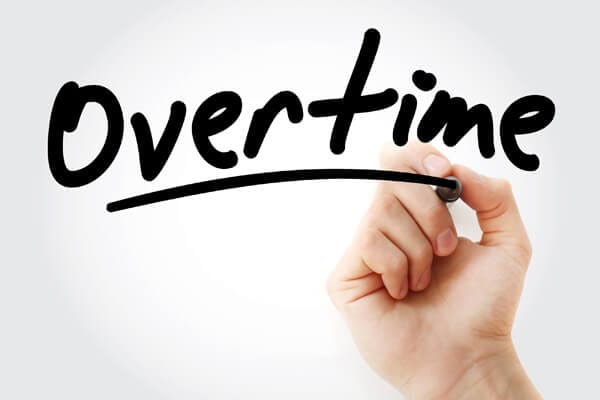4 Things to Know About the Final Rule on Regular Rate of Pay for Overtime

Many employees in New York are entitled to extra wages when they work more than 40 hours a week, under long-established Department of Labor (DOL) rules on overtime pay. What you may have missed while focused on the global COVID-19 pandemic is that a new regulation might affect your rights as a worker. Many employment law analysts see the measure as a benefit for both employers and employees because it provides much-needed clarity in the area of what’s considered a “regular rate of pay” for purposes of determining overtime pay details.
The details of the underlying wage laws are complex, and the new rule will bring challenges as employers implement changes to comply with it. You should discuss your situation with a Georgia overtime claims and employment law attorney, though some general information should be helpful.
- The new regular rate rule modernizes an existing provision of the FLSA. The Final Rule on Regular Rate Under the Fair Labor Standards Act (FLSA) doesn’t make any significant changes to employees’ rights to overtime pay. You’re still entitled to 1.5 times your normal wages when you work more than 40 hours in a work week. The regulation does address what factors should be considered when determining the regular rate of pay, since confusion has persisted for both employers and employees for many years. The rule is intended to put wage and hour laws more in tune with the realities of the modern workforce, representing the first significant update in more than 50 years.
- The role of perks and benefits is clarified as these factors pertain to the regular rate. There are multiple requirements that define what forms of compensation should be included when employers pay overtime through the FLSA. Anything falling under the umbrella of the regular rate must be multiplied by 1.5 to comply with the overtime regulations. The new rule takes into account some of the perks employees receive today that weren’t contemplated by the DOL five decades ago.
- Employers can exclude certain designated perks. Though you should trust an employment attorney to address the specifics, the DOL – Wage and Hour Division did clarify that employers are allowed to exclude certain items from the regular rate of pay. In other words, employers do NOT need to apply the 1.5 overtime multiplier when it comes to:
- Parking fees or discounts;
- Onsite wellness and health services, including access to fitness centers;
- Paid sick leave or time off;
- Reimbursement for cell phone plans;
- Payouts for association and membership dues;
- Signing and periodic bonuses;
- Discretionary bonuses; and,
- Many other perks.
- You may have rights if your employer violates the new rule. If you don’t receive overtime pay based upon the proper regular rate, you may be able to recoup your losses. You need to meet certain eligibility rules, and those in administrative, executive, and professional roles generally don’t qualify. However, if you do satisfy the requirements, you can recover unpaid wages, interest, and any penalties that your employer must pay for noncompliance.
Contact a Georgia Employment Law Attorney to Discuss Your Rights
Because the rule on an employee’s regular rate of pay is new and may be overlooked in light of media attention on the COVID-19 pandemic, retaining an experienced lawyer is critical. At the Vaughn Law Firm, our team is dedicated to assisting workers in a wide range of employment law matters, including those involving overtime pay. We can assist with your claim and related legal issues, so please contact our office in Decatur, GA to discuss your circumstances. You can schedule a free consultation by calling 877.615.9495 or visiting our website.




